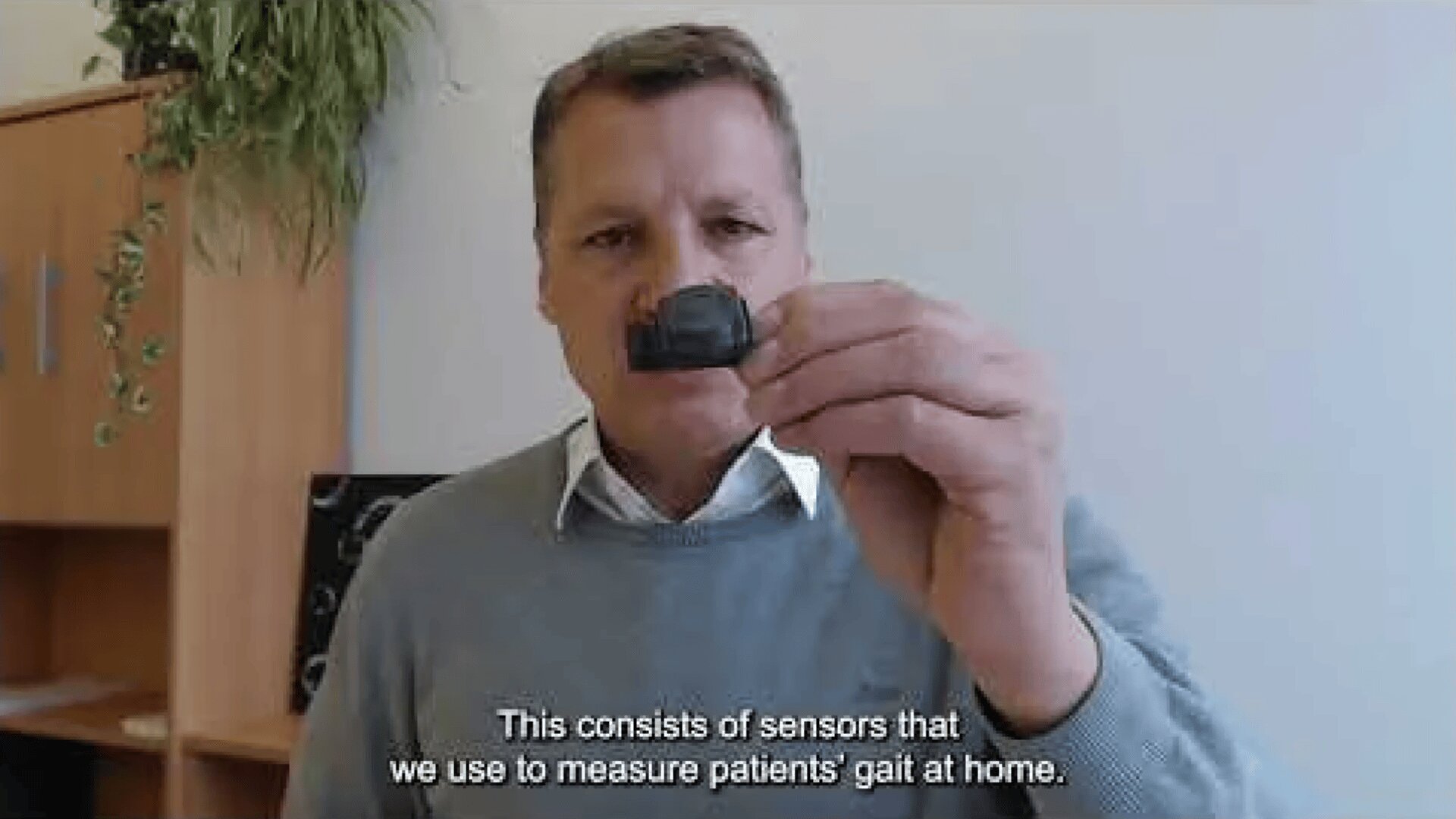Parkinson's: Improving quality of life with "Telenurse" and AI
Around 400,000 people in Germany are affected by Parkinson's disease. The start-up Portabiles Healthcare Systems from the Erlangen medtech cluster has dedicated itself to slowing down the physical decline of patients and enabling them to lead an active life for a long time.
"Parkinson's" is the second most common neurodegenerative disease worldwide after "Alzheimer's". Reputable estimates assume that 1 per cent of people over 60 suffer from it - and the trend is rising, as life expectancy is also increasing.
The cause of the incurable disease is the progressive loss of nerve cells that control movement. Typical symptoms are therefore muscle tremors and stiffness as well as an unstable posture. People with Parkinson's have problems walking and often fall. This is precisely where Portabiles comes in with its care model, which is being launched on the healthcare market under the name ParkinsonGo.
The idea and scientific basis for this comes from an interdisciplinary team that combined findings from specialised areas of medicine and computer science and continues to do so through ongoing research. Its members discovered that the gait of Parkinson's patients allows conclusions to be drawn about the current course of the disease - through parameters such as stride length - and they looked for and found a way to collect the relevant data using sensors on the shoes, analyse it with intelligent algorithms and make it usable for doctors.
Very precise medication required
With the help of this data, neurologists specialising in the treatment of Parkinson's can identify the smallest changes in gait quality at a glance, accurately classify the degree of the disease and precisely adjust the medication therapy. "Adjusting medication for Parkinson's patients is very complex. It really is a matter of selecting the dose precisely and determining the time of administration almost to the minute," says Ralph Steidl, Portabiles co-founder and Managing Director, describing the particular challenges of the treatment.
To bring their discovery to market maturity, Steidl and Björn Eskofier, Chair of Computer Science (Machine Learning and Data Analytics) at the University of Erlangen-Nuremberg, and Jochen Klucken, Deputy Head of Molecular Neurology at Erlangen University Hospital at the time, founded Portabiles Healthcare Technologies GmbH. Equipped with funds from "Friends and Family", supported by a business angel and funding from the Bavarian Ministry of Economic Affairs, the company was launched in December 2016. In addition, start-up funding from the ESA Business Incubation Centre helped to cover expenses for rent and office equipment. Accompanied by several successful financing rounds, research projects followed in collaboration with clinics in Germany and abroad, in particular the university hospitals in Erlangen and Marburg, which produced promising results on the effectiveness of the method.
Support from "Telenurses"
However, the concept for the product itself also underwent a remarkable development: For example, the original approach for a DiGA was abandoned in favour of a significantly expanded telemedicine-based approach. At its core is an app: the ParkinsonGo app analyses the patient's gait pattern and derives individualised recommendations for action, such as exercises to do at home and tips for dealing with the disease.
In addition, Parkinson's "telenurses" use the app data to monitor the state of health of those affected and support them and their relatives by telephone or video conference. If the patient's state of health deteriorates, this is automatically recognised by the app and the telenurse contacts the relevant neurological practice.

If necessary, the "Telenurse" contacts the patients.
"We see the future of Parkinson's care as a mixture of digital and human components, in which patients and their relatives are supported by targeted case management," says Ralph Steidl, explaining ParkinsonGo's holistic approach. There are several wearables on the market that measure the mobility of Parkinson's patients, but: "This is pure monitoring and we are very different from that. Our hybrid care model is unique," says the Managing Director.
On the cusp of a breakthrough
And this is clearly also convincing the statutory health insurance companies in Germany. An important milestone was reached in 2024: Portabiles concluded a selective contract with the Hesse contract working group of the company health insurance funds (BKKs) at the beginning of the year. People with Parkinson's disease who are now insured with 23 BKKs can enrol in this contract together with their treating neurologists and benefit from the innovative treatment concept.
Portabiles is now on the cusp of a commercial breakthrough. Other statutory health insurers can join the open contract, and additional agreements with statutory and private health insurers are soon to follow. The task now is to convince doctors and patients of the benefits of ParkinsonGo so that the contractual framework is filled with life.
This is a classic sales task that Portabiles is tackling in various ways: currently by directly approaching specialist neurological practices, presentations at medical congresses and events and via patient associations that regularly organise network meetings or offer further training. A sales co-operation with a pharmaceutical company is also being planned.

Ralph Steidl presents ParkinsonGo at the Congress for Parkinson's and Movement Disorders.
New markets, new product developments
Portabiles has been looking abroad for some time now. France has been recognised as an interesting market, not least because of its well-functioning reimbursement system in the field of telemedicine, and corresponding research collaborations have been agreed. As part of an EU project, Portabiles is exploring the possibilities of integrating service providers such as physiotherapists into a Parkinson's care concept in Spain and France. And clinics on the other side of the Atlantic have also been recruited via recommendations to try out ParkinsonGo. In a few years' time, Portabiles also wants to be present in the USA, one of the most important healthcare markets in the world.
Technical product development is being driven forward in parallel with further market development. This is largely in the hands of the company's own specialists - Portabiles only sources the sensors for the shoes from a nearby supplier. In a future expansion stage, the app will use artificial intelligence to predict freezing - a sudden blockage that renders those affected immobile - and initiate appropriate measures. "This is a research project that we are currently working on to not only warn patients, but to immediately give them tips on what to do now," says Ralph Steidl. This would be another building block for holistic Parkinson's care. But certainly not the last.
| Portabiles Healthcare Technologies | |
|---|---|
| Year of foundation | 2016 |
| Head office location | 91052 Erlangen |
| Founders | Ralph Steidl (CEO), Prof. Dr. Björn Eskofier, Prof. Dr. Jochen Klucken |
| Number of employees | 14 |
| Website address | www.portabiles-hct.de |


